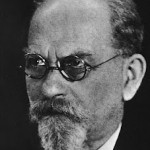Advanced Seminars
POSTGRADUATE SEMINARS
We offer individualized seminars for post-graduate students and professionals. Seminars are twelve weeks long and combine videoconferencing, supervised essays or research projects, and ample opportunity for dialogue and detailed feedback. For information please contact marc@marcapplebaum.com. Seminars currently available are:
PHENOMENOLOGICAL PHILOSOPHY This seminar provides students with an overview of the philosophical background underlying phenomenological approaches to psychology. Students will survey the philosophy of Husserl and Merleau-Ponty, including the methodological issues of psychologism, the reduction, and the epochê.The instructor will present phenomenological philosophy’s core concepts through a series of videoconferences that will include both lecture and dialogue with students, as well as providing detailed written feedback on students’ seminar papers.
 PHENOMENOLOGICAL RESEARCH This seminar is an introduction to Giorgi’s adaptation of Husserl’s phenomenological philosophy for research in psychology. Students will read praxis-related articles from Giorgi, Englander, and Applebaum, practice data analysis using model data provided by the instructor, and gather original interview data for a seminar project. The instructor will provide mentoring and feedback in the use of the method will be provided via videoconferencing and detailed written feedback on students’ project work.
PHENOMENOLOGICAL RESEARCH This seminar is an introduction to Giorgi’s adaptation of Husserl’s phenomenological philosophy for research in psychology. Students will read praxis-related articles from Giorgi, Englander, and Applebaum, practice data analysis using model data provided by the instructor, and gather original interview data for a seminar project. The instructor will provide mentoring and feedback in the use of the method will be provided via videoconferencing and detailed written feedback on students’ project work.
HERMENEUTIC PHILOSOPHY
The hermeneutic tradition explores human experiences with particular attention to the communities of meaning (cultural, sub-cultural, linguistic, religious, gendered) within which such meanings are lived. This course introduces students to three philosophers who pioneered this philosophical tradition: Heidegger, Ricoeur, and Gadamer. The work of these philosophers will be examined in the light of their implications for the psychological study of the human person.
This seminar introduces students to the psychological analysis of narratives is informed by the hermeneutic tradition, both in terms of the phenomenological foundations of that tradition reflected in the work of Husserl, Heidegger, and Merleau-Ponty, and more specifically in terms of Ricoeur’s idea of “narrative identity.” A hermeneutic approach to narrative analysis focuses on reading participants’ accounts as interpretive self-representations, and making explicit the participants’ narrative identity as embodied in their accounts of meaningful experiences. Students will practice hands-on data analysis and receive detailed feedback from the instructor.
What is empathy? Can you teach empathy? Can being empathic increase your well-being or your working life? The term empathy was adapted into English in 1858 from the German ein fuelen (feeling into) in Lotze’s philosophy. This concept became more and more important for the study of the human being in areas such as axiology, psychology, intersubjectivity, sociology. In this course we will reflect on its origin and its difference from its cognate “sympathy.” Students will read selections from the work of Lotze, Lipps, Husserl, and Stein in order to understand the theoretical boundaries of this concept and how we can employ it in our daily life, or in professions such as counseling or teaching.




 Follow
Follow email
email